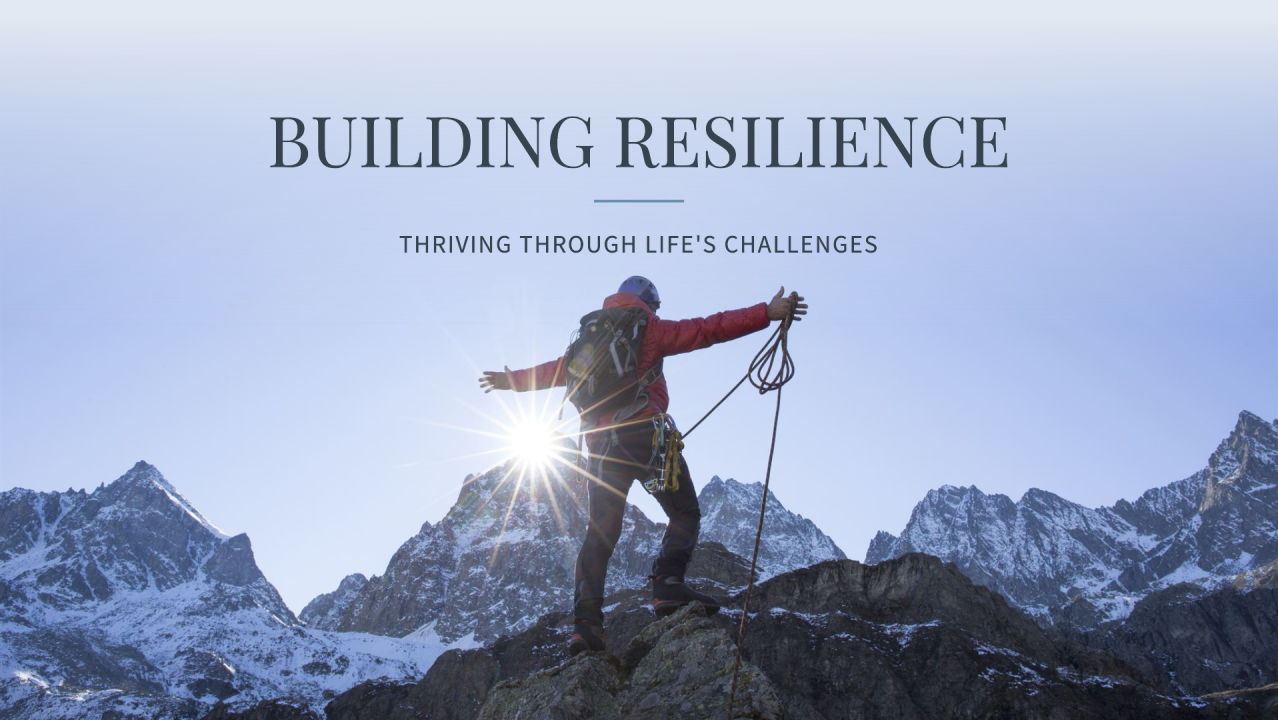The Unyielding Power of Resilience in Overcoming Adversity

In the intricate dance of life, adversity often emerges as an unwelcome guest, challenging our resolve, testing our limits, and shaking the foundations of our existence. Yet, amidst the tumult of adversity, resilience stands as a beacon of hope—a testament to the human spirit’s capacity to rise, adapt, and thrive in the face of hardship. Defined as the ability to bounce back from setbacks, adversity, and trauma, resilience represents a profound form of emotional strength, enabling individuals to navigate life’s trials with courage, perseverance, and grace. In this article, we embark on a journey to explore the transformative power of resilience, uncovering the psychological mechanisms and practical strategies for building emotional strength and resilience in the face of adversity.
Understanding Resilience
At its core, resilience is not merely about bouncing back to a state of equilibrium after facing adversity; it is about harnessing adversity as a catalyst for growth, transformation, and renewal. Resilience encompasses a dynamic process of adaptation and coping, involving psychological, emotional, and behavioral responses to stressors and challenges. While resilience is often associated with individual traits and characteristics, such as optimism, self-efficacy, and flexibility, it is also shaped by environmental factors, social support networks, and coping strategies.
The Psychology of Resilience
Psychologists have long been fascinated by the phenomenon of resilience, seeking to unravel the psychological mechanisms and factors that contribute to resilience in the face of adversity. Research suggests that resilient individuals possess certain psychological traits and coping strategies that enable them to thrive in the face of adversity. These may include:
Optimism and Positive Outlook
Resilient individuals tend to maintain a positive outlook on life, even in the face of adversity. They view setbacks and challenges as temporary and surmountable, and they cultivate a sense of hope and optimism that fuels their resilience and determination.
Adaptability and Flexibility
Resilient individuals are adaptable and flexible in their thinking and behavior, able to adjust their strategies and perspectives in response to changing circumstances. They embrace change as an opportunity for growth and learning, rather than as a threat to their stability or identity.
Problem-Solving Skills
Resilient individuals possess strong problem-solving skills and a sense of efficacy in their ability to overcome obstacles and challenges. They approach problems with a proactive and solution-focused mindset, seeking out resources and support to address challenges effectively.
Emotional Regulation
Resilient individuals are adept at regulating their emotions and managing stress in healthy and adaptive ways. They practice self-care and coping strategies such as mindfulness, relaxation techniques, and seeking social support to cope with stressors and maintain emotional well-being.
Social Support Networks
Social support networks play a crucial role in fostering resilience, providing individuals with emotional validation, practical assistance, and a sense of belonging and connection. Resilient individuals cultivate strong relationships and support systems that buffer against the impact of adversity and foster resilience.
Building Resilience: Strategies for Strengthening Emotional Strength
While resilience may be influenced by individual traits and experiences, it is also a skill that can be cultivated and strengthened over time. Here are some practical strategies for building resilience and emotional strength in the face of adversity:
Cultivate Self-Awareness
Develop a deeper understanding of your thoughts, feelings, and reactions to stressors and challenges. Practice self-reflection and mindfulness to cultivate greater self-awareness and insight into your strengths, values, and coping mechanisms.
Develop Coping Skills
Build a toolbox of coping skills and strategies that you can draw upon in times of adversity. These may include relaxation techniques, mindfulness practices, problem-solving skills, and seeking social support from friends, family, or mental health professionals.
Maintain Perspective
Foster a balanced and realistic perspective on adversity, recognizing that setbacks and challenges are a natural part of life’s journey. Cultivate resilience by reframing negative experiences as opportunities for growth, learning, and personal development.
Build Social Support Networks
Nurture and strengthen your social support networks by cultivating meaningful relationships with friends, family, colleagues, and community members. Seek out individuals who uplift and support you, and offer your support in return.
Practice Self-Care
Prioritize self-care and well-being by attending to your physical, emotional, and mental health needs. Engage in activities that nourish and replenish you, such as exercise, hobbies, creative pursuits, and spending time in nature.
Set Realistic Goals
Set realistic and achievable goals for yourself, breaking larger tasks into smaller, manageable steps. Celebrate your progress and accomplishments along the way, and recognize the resilience and strength that you demonstrate in pursuing your goals.
Conclusion
In the crucible of adversity, resilience emerges as a beacon of hope—a testament to the indomitable spirit of the human soul. By cultivating resilience and emotional strength, we can navigate life’s trials and tribulations with courage, grace, and resilience, emerging from the crucible of adversity stronger, wiser, and more resilient than before. As we embrace the transformative power of resilience, may we harness its unyield.


